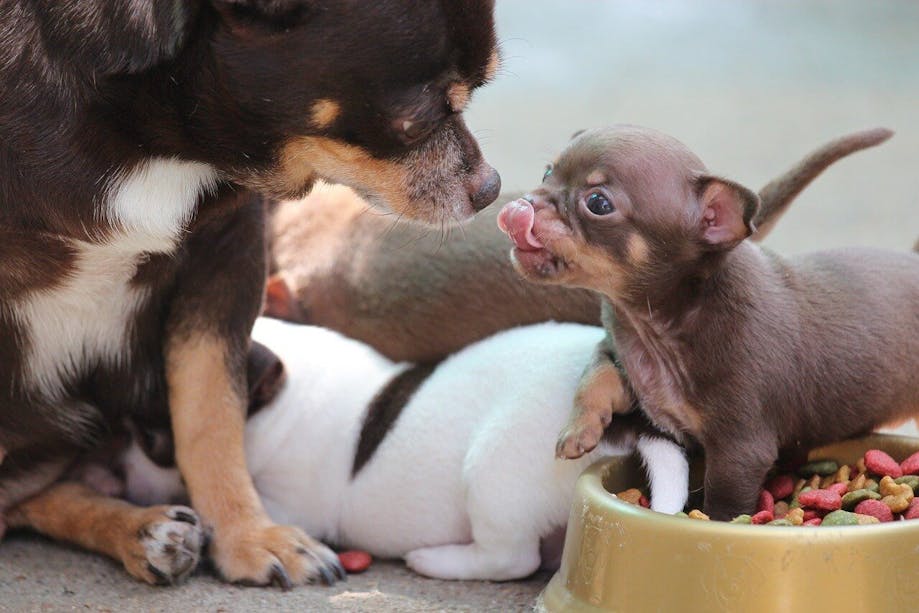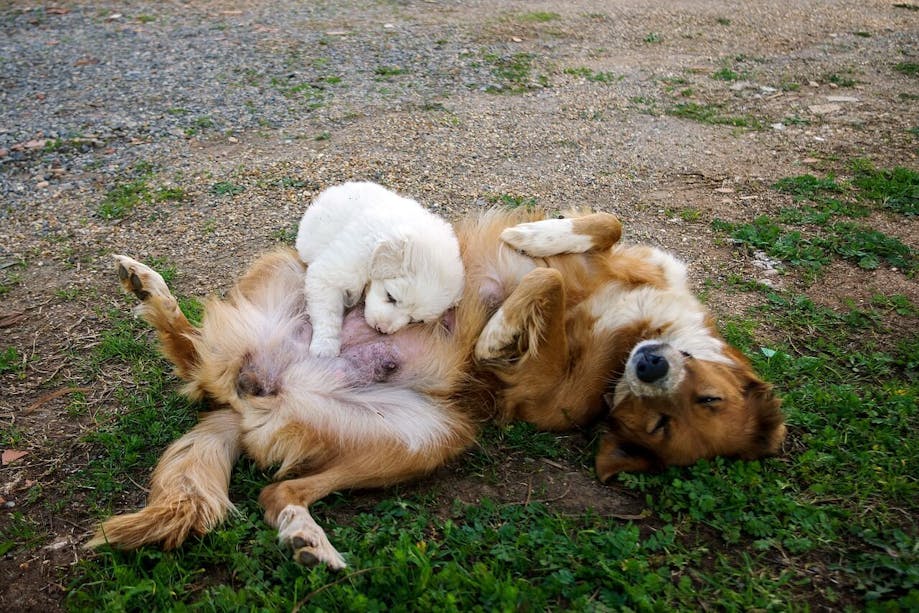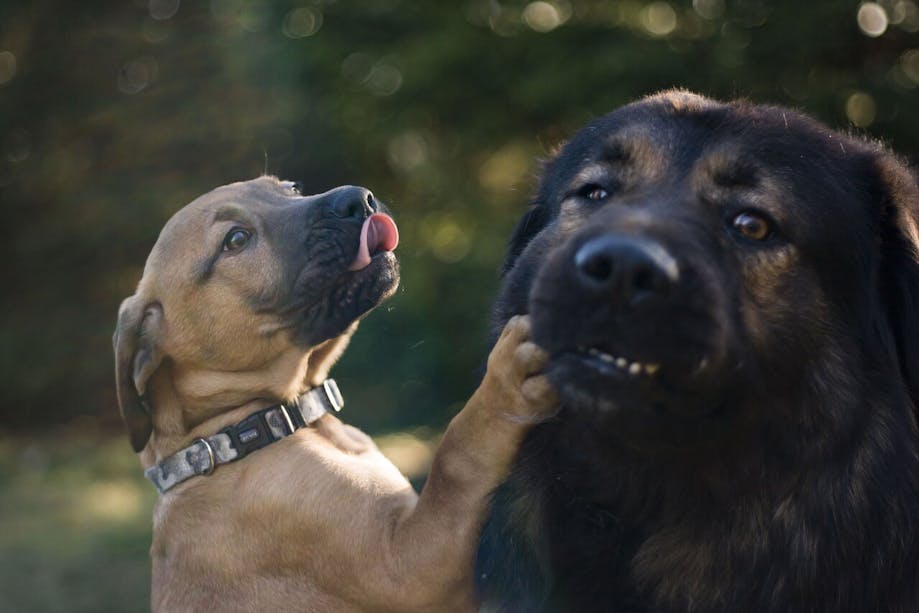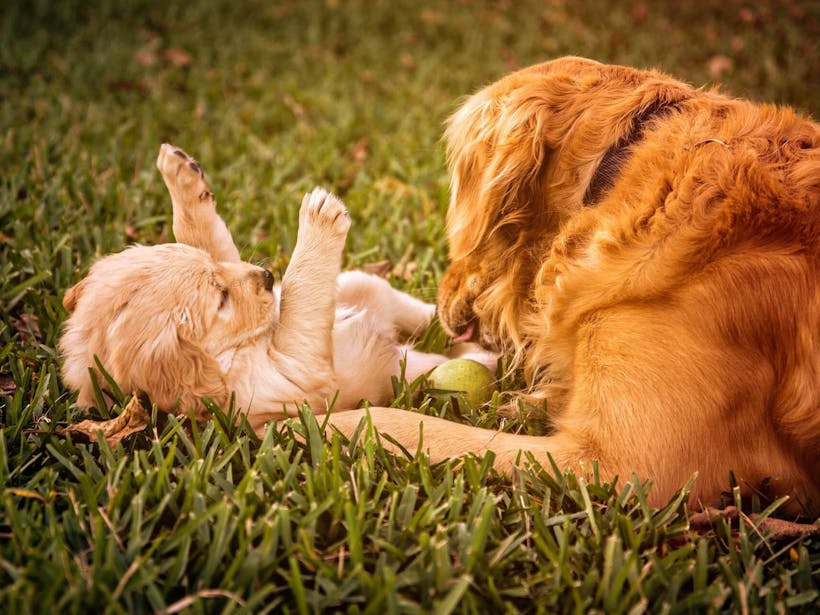There are few things sweeter than a mother dog tending to her puppies. It’s hard to imagine giving birth to a litter of puppies and somehow knowing just what to do to take care of them all.
And yet, mother dogs manage to make it look natural—because it is!
Her behavior (so-called “maternal instinct”) comes from a mix of hormones and lessons carried over from her ancestors.

Why do female dogs nest?
A dog’s maternal instinct begins to kick in before giving birth. If you’ve ever been around a pregnant dog, you’ve probably seen her circle around looking for the perfect place to have her puppies. She may paw at blankets or pillows to make the area as safe and comfortable as possible.
This nesting behavior stems from her wild dog ancestors that would build dens so they could give birth in a space protected from predators and the elements.

What makes mother dogs so… motherly?
Once a dog gives birth to her puppies, two different hormones contribute to her motherly instincts. The first is oxytocin, sometimes called the “love hormone.” It’s what drives a mother dog to nuzzle her puppies or wrap around them to keep them warm while nursing. (Interestingly, oxytocin is also linked to the bond that humans have with their dogs.)
The second hormone is prolactin. It’s involved in milk production but is also responsible for a mother dog’s protective nature. She feels this need to protect most strongly in the early days of her puppies’ lives—before their eyes and ears open.

Why do mother dogs lick their puppies?
Mother dogs often lick their puppies after they are born. She does this for two primary reasons:
- To stimulate basic bodily functions like breathing, urinating and defecating
- To keep the puppies clean
This behavior is another artifact from her ancestors, who cleaned their pups to remove any scents that might attract predators.
There are some circumstances when a mother dog may not show all of these maternal behaviors. But by and large, a mother dog is well-equipped to provide her puppies with all the care and nurturing they need when they are born.










